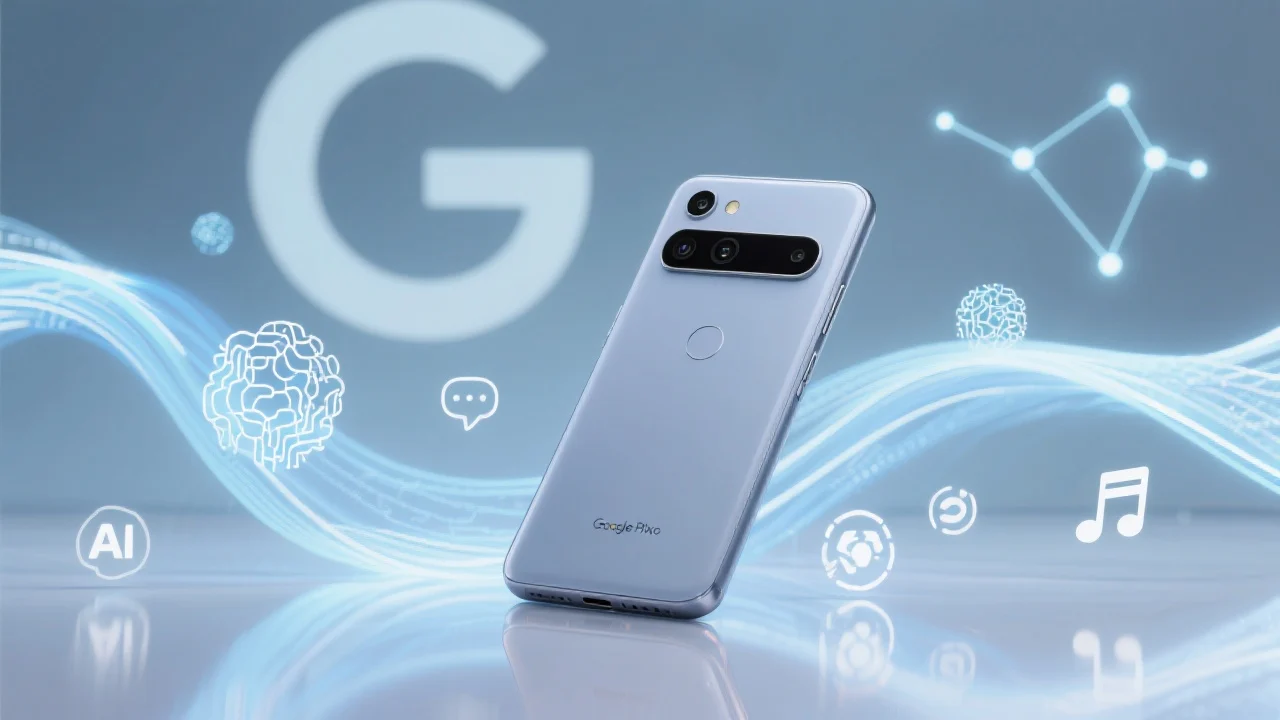
If you’ve been following the smartphone wars, you know the script: a new device launches, promising a better camera, a faster chip, a sleeker design.
But Google’s Pixel 10, unveiled this week, is less about the hardware arms race and more about a new kind of intelligence.
This year, Google isn’t just selling a phone. It’s pitching a vision of what happens when your device doesn’t just respond to you, but anticipates you, sometimes before you even know what you need.
The Gemini Era: AI at the Core
At the heart of the Pixel 10 is Gemini, Google’s latest and most ambitious AI assistant. Unlike the voice assistants of yesteryear, Gemini isn’t just a chatbot or a search box. It’s a deeply integrated, context-aware system that sits at the center of the Pixel experience. Powered by the new Tensor G5 chip and the Gemini Nano model, Gemini can run complex generative AI tasks right on the device, without sending your data to the cloud. This isn’t just about privacy. It’s about speed, reliability, and a sense that your phone is truly yours, not just a window to someone else’s server farm.
Gemini’s capabilities are woven into nearly every aspect of the Pixel 10. Need to find the address for an Airbnb when a friend texts you? Gemini surfaces it instantly, ready to share. Want to translate a phone call in real time, in your own voice? Gemini’s on it, supporting a growing list of languages. The assistant can even see what’s on your screen and offer help, thanks to the new Gemini Live feature, which builds on Google’s Project Astra image recognition work. It’s a little like having a personal researcher, translator, and life coach in your pocket, one that’s always learning, but never overbearing.
Here is what the phone looks like on Amazon right now. $999 is not bad considering this power.

Magic Cue: Anticipation, Not Just Automation
The real showstopper, though, is Magic Cue. This feature is less about answering your questions and more about answering the questions you haven’t thought to ask. Magic Cue combs through your digital life, your calendar, messages, screenshots, and more, to surface relevant information and suggest actions at just the right moment. If you’re calling an airline, Magic Cue pops up your flight details before you even ask. If a friend wants to know when your flight lands, Magic Cue suggests the answer as you’re replying.
It’s a subtle but profound shift. Instead of toggling between apps and digging for details, the phone becomes a kind of digital concierge, quietly orchestrating your day. And crucially, Magic Cue runs on-device, giving users granular control over what data it can access and when. You can turn it off, limit its reach, or let it run wild. Google seems to have learned from past privacy missteps.
Beyond the Basics: AI in Everyday Life
The Pixel 10’s AI ambitions don’t stop at reminders and translations. The phone’s camera now features a “Camera Coach” that can describe scenes, suggest better angles, and even merge multiple photos so everyone looks their best. Notetaking and journaling get a boost from on-device AI that offers writing prompts and tracks your progress over time. Even Gboard, Google’s keyboard, now includes AI-powered writing tools that can rewrite your texts in different styles or help you find the perfect emoji.
For the creatively inclined, the Recorder app can turn your humming or singing into full-fledged music tracks, choosing a style that matches your mood. And for those who live in screenshots, the new integration with NotebookLM means your phone can automatically suggest adding useful images or transcripts to your notes.
The Business of AI: Subscriptions and Strategy
Google isn’t shy about the business side of this AI push. Pixel 10 Pro buyers get a year of “AI Pro,” a $19/month subscription that unlocks advanced features like image and video generation, priority access to new AI tools, and extra storage. It’s a clear signal that Google sees AI not just as a feature, but as a service, one that could eventually rival the app store model in importance.
Yet, for all the hype, there’s a question hanging over the launch: will AI finally move the needle for Pixel sales? Google’s market share remains modest, and so far, no manufacturer has proven that AI alone can make users switch from Apple or Samsung. But with Apple’s own AI suite delayed until 2026, Google has a rare window to define what “smart” really means in a smartphone.
A New Kind of Smartphone Arms Race
The Pixel 10 isn’t just another phone with a smarter assistant. It’s a bet that the next leap in mobile technology won’t be about megapixels or refresh rates, but about how seamlessly your device can weave itself into the fabric of your life. Whether that’s a future people want or are ready for remains to be seen. For now, Google is setting the pace, and the rest of the industry is watching closely.
